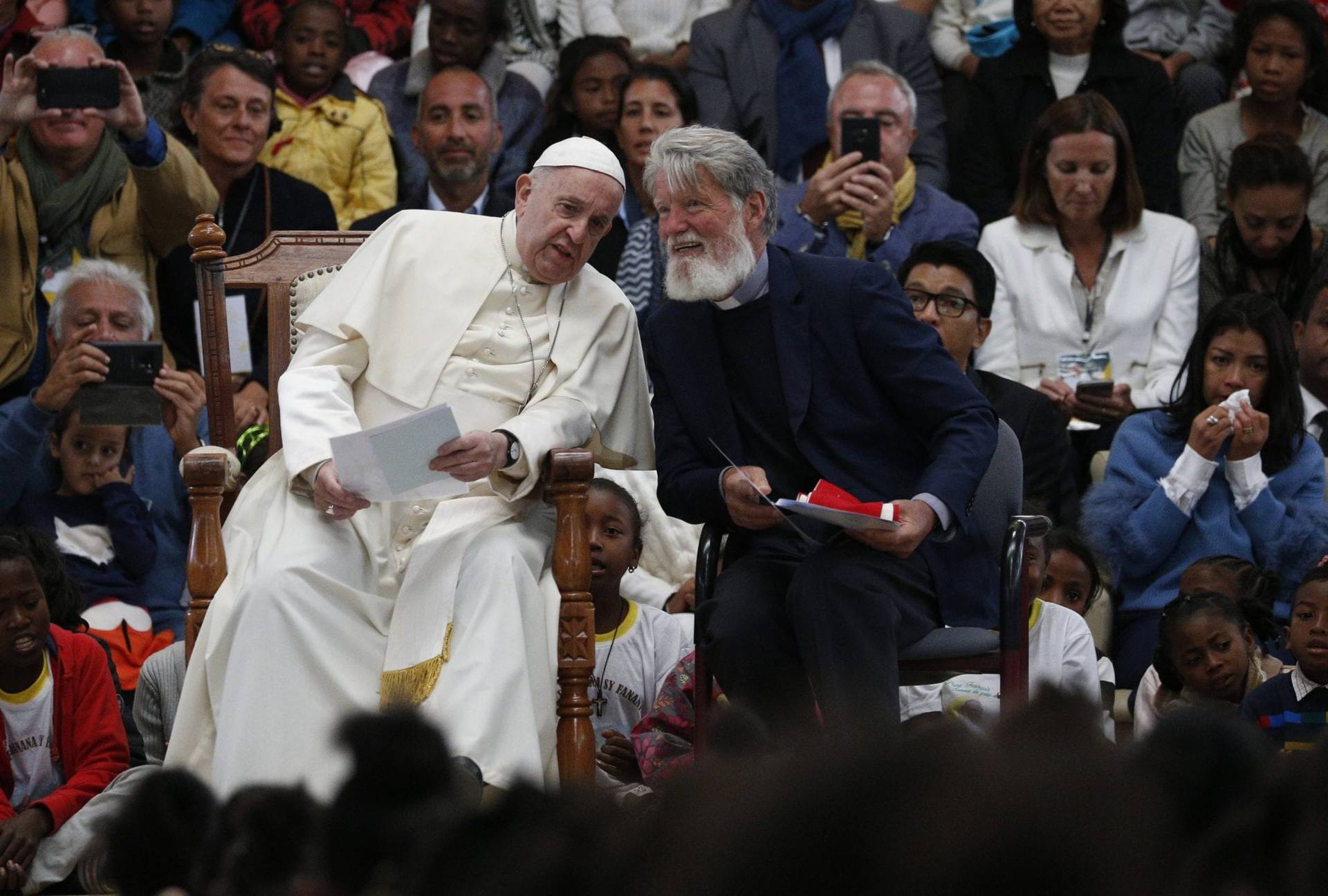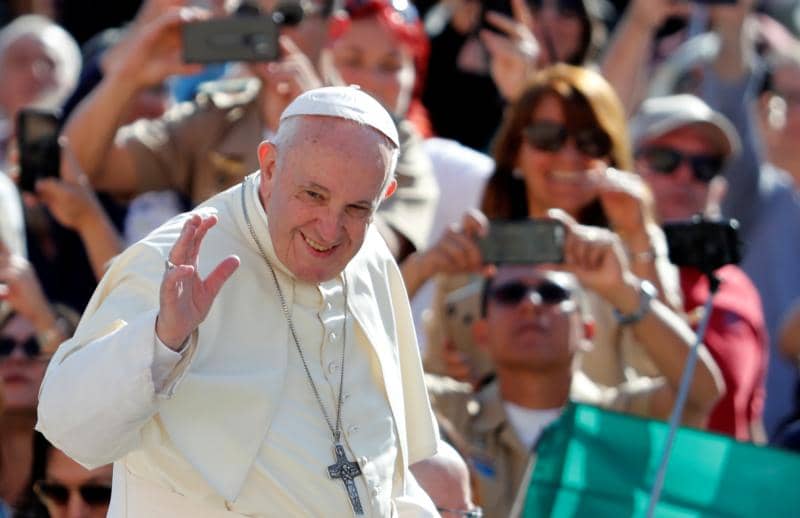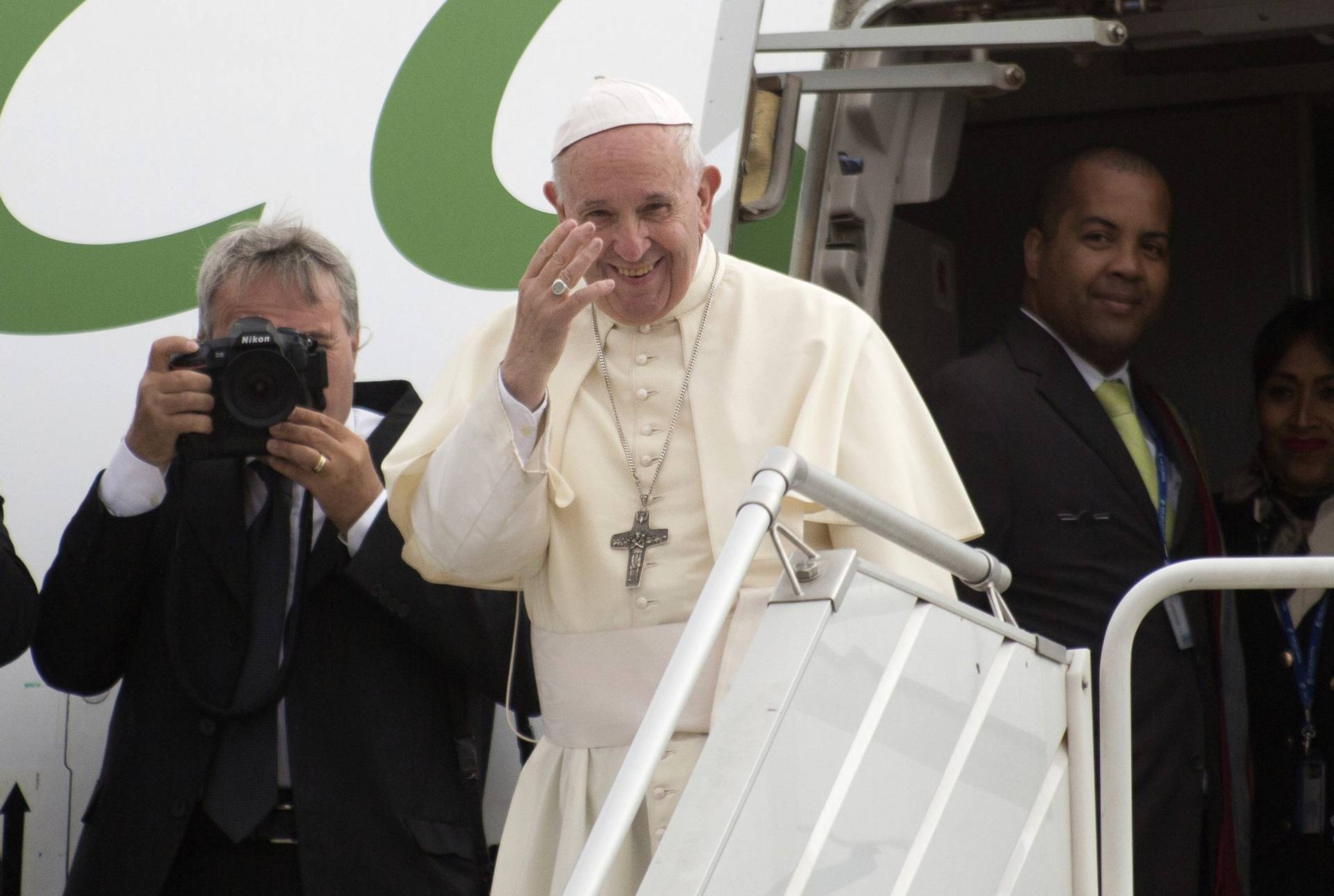ANTANANARIVO, Madagascar — Leading tens of thousands of young Africans in prayer in Madagascar Saturday, Pope Francis told them God is counting on them to make the Church and their country better, and that despite the hardships they face, they cannot give up.
The pope warned there’s a risk of thinking things cannot change, “especially when you lack the bare necessities to make it from day to day or to pursue your studies, or when you realize that without a job, stability and social injustice, your future is blocked… and are then tempted to give up.”
Not a small share of young people in Madagascar are in precisely the situation the pope described: An estimated 70 percent of the population lives on less than $2 a day, the basic definition of extreme poverty.
God, Francis said, is the reason to keep going.
“He is alive, and he also wants you to be alive,” the pope said. “He wants you to share all your gifts and charisms, all your dreams and your talents.”
Francis’s words came during a prayer vigil with youth on the diocesan grounds of Soamandrakizay, where tens of thousands will spend the night waiting for Francis to say the first public Mass in Madagascar Sunday morning.
The pope was welcomed by people cheering and ululating, and throughout the evening there were several moments of dance and singing, interrupted by young people telling the pope their stories.
Bishop Fulgence Razakarivony of Ihosy noted that youth in Madagascar represent more than 60 percent of the population, and they are “full of enthusiasm and vitality, looking for a better future, but also face multiple difficulties on a social, cultural, and intellectual level.”
The bishop noted that from the foundation of the Church in Madagascar, lay people have been fundamental in evangelization. He mentioned Blessed Victoria Rasoamanarivo, a lay woman who led the local church during a period of persecution when missionaries were forced to flee the country. She died in 1894.
Engaging Rova Sitraka Ranarison, a young person who talked to the pope about prison ministry initiatives, Francis said that this mission “transformed” him, changing his way of seeing and judging people.
“In your mission, you learned to stop labeling people and instead to call them by name, as the Lord does with us,” Francis said, noting that God doesn’t call each person by their sins, errors or limits. The devil, he said, “also knows our names,” but he prefers to remind people of their sins, to make “us feel that however much we do, nothing can ever change, everything will remain the same.”
Through prison ministry, the pope said, Ranarison learned to see the history hidden behind a person’s face.
“You realized that a good number of those in prison were there not because they were bad, but because they had made bad choices,” Francis said. “They took the wrong path and they realize it, and now they long to make a fresh start.”
People can “go astray,” he said, and run after illusions that promise instantaneous joy, but that in the end leave one stranded. During youth, he said, such illusions can seduce with things that “ultimately deaden us,” taking one’s vitality and making people dependent and bitter.
Francis also urged those present to ask themselves if Jesus can count on them to build the future of Madagascar and the Church with the joy and the freshness of their faith, offering a Christian answer to the many challenges they face.

They are not called to do so on their own, Francis said, because “the Lord is not looking for lone adventurers.”
Each person has a mission, he said, but they’re not to go out alone “to the front lines.” According to Francis, this is something shared with the second testimony during the vigil, that of Vavy Elyssa, illustrated.
“It is impossible to be a missionary disciple all by ourselves,” Francis said. “We need others in order to experience and share the love and the trust that the Lord has shown us. A personal encounter with Jesus is essential, not simply as individuals but also in community.”
Earlier in the afternoon, Francis had addressed the local bishops, urging them to have a “prudent and independent” cooperation with the government, saying that this remains a “constant challenge, for there is always the danger of collusion.”
After going completely off the cuff earlier on Saturday when speaking to a group of cloistered nuns, Francis mostly stuck to his prepared text, though he added some soundbites, like asking the bishops not to “clericalize laypeople,” or warning them to pay attention to young priests who are “too rigid,” because behind this rigidity there might be “serious problems.”
Francis is in Madagascar until Sept. 10, when he heads back to Rome. He’s set to say Mass for thousands on Sunday before visiting Akamasoa, a project led by an Argentine missionary priest that lifted some 25,000 people out of extreme poverty. He’s also visiting neighboring Mauritius on Sept. 9.
Follow Inés San Martín on Twitter: @inesanma
Crux is dedicated to smart, wired and independent reporting on the Vatican and worldwide Catholic Church. That kind of reporting doesn’t come cheap, and we need your support. You can help Crux by giving a small amount monthly, or with a onetime gift. Please remember, Crux is a for-profit organization, so contributions are not tax-deductible.















